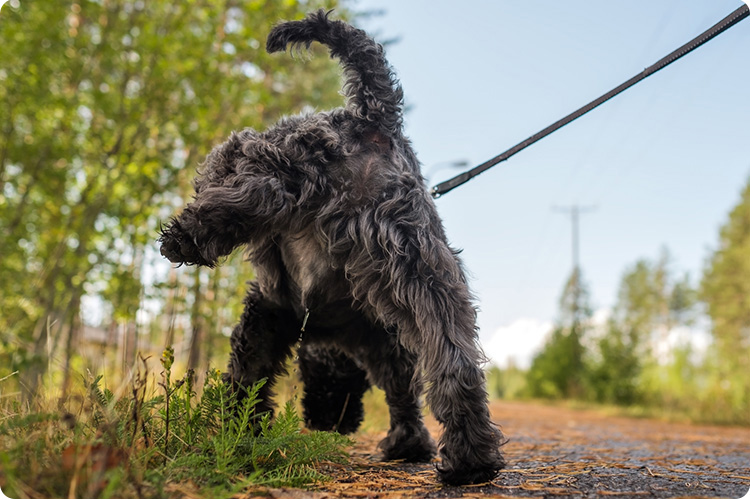New cat
How to set up your home to help your new cat settle in quickly
Cats, Adopters, Cat behaviour, Kitten

Toileting and even not-toileting are common frustrations in dog ownership. Here's our advice on encouraging housetraining in dogs.
For the first couple of days in a new home, no matter how old they are, treat your new dog like a puppy when it comes to toileting. This involves taking them out to the garden every couple of hours to toilet and supervising them at all times to prevent any toileting accidents in the house. Praise your dog each time they toilet in the right place.
Tip: Don't always bring them straight back inside after toileting. Some dogs that enjoy garden time will soon learn that the fun stops when they've toileted and will hold it in to prolong time outside!
Some of our rescue dogs have never lived in a home before, or have learnt to associate toileting in front of people as a negative thing due to bad experiences in previous homes. These dogs may take longer to house train and will need more patience.
If a dog is used to a crate it can be useful to have the dog in or near your bedroom the first few nights so they can indicate to you if they need the toilet. It may be the dog will settle in your bedroom in a bed perfectly happily. If you would rather your dog sleep downstairs it is best to choose a room without carpet in case of accidents, and keep them in one room as opposed to free roaming the downstairs of the house. Dogs are den animals, and more often than not feel nice and secure in a smaller room.
.jpg)
"He knows he's done wrong". The 'guilty look' is one of the most common misconceptions in dog behaviour. In fact it has been discovered that dogs are unable to feel the emotion of guilt. Dogs that look 'guilty' are either reacting to your facial expression and body posture, or they have previously learnt that toileting with an owner nearby results in punishment.
It's important to teach your dog to let you know when they need to go out – they won't learn to do this if your back door is permanently open. You can teach your dog that sitting by the back door means you come and open the door; this will increase the likelihood of them offering this behaviour in future when they need to go out.
Once you've learnt your new dog's toileting routine and the number of hours they're able to go without asking for the toilet, you'll be able to prepare them for time alone.
If you know your dog toilets two hours after eating, you can adapt their feeding time around when you need to leave - so it may be you feed them early to allow them time to toilet before you leave.
When you return home, let your dog out for the toilet straight away as the excitement of greeting you after time apart is likely to cause them to want to toilet!
Dogs that won't toilet on walks are often dogs that are either very fearful of advertising their scent to other dogs, or they lack confidence in the outside world. Some dogs have learnt that toileting in front of people is scary as they have been told off for this in the past, and they may prefer to toilet behind hedges and sheds.
Anti-anxiety products such as Adaptil collars and Thundershirts can help support the dog as they gradually get used to toileting in new environments.
Encouraging sniffing also helps relax a dog, and a relaxed dog is more likely to feel comfortable enough to toilet. This can be done by throwing treats to the ground, or heading out on interesting walks such as woodlands.
To get your dog to toilet in your garden, make your garden a positive place to be. If they are playful, get a favourite toy and play outside, or scattering some treats (or part of their breakfast) on the lawn.